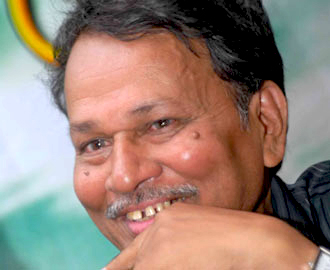Kathmandu, Feb 12: Nepal has suspended the licence of a mountainous resort for three months due to poor security management and managerial weakness at the hotel where eight Indian tourists, including four minors, died of possible asphyxiation, according to media reports.
Kathmandu: Nepal has suspended the licence of a mountainous resort for three months due to poor security management and managerial weakness at the hotel where eight Indian tourists, including four minors, died of possible asphyxiation, according to media reports.
Tragedy struck a group of 15 tourists from Kerala when eight of them died on January 21 due to possible asphyxiation after they fell unconscious probably due to a gas leak from a heater in their room at a mountainous resort in Makwanpur district.
The tourists were airlifted to HAMS hospital here where they were pronounced dead on arrival. Makwanpur police said the victims might have fallen unconscious due to asphyxiation.
The Department of Tourism on Sunday imposed a ban on the operation of Daman-based Everest Panorama Resort for three months based on the report submitted by a probe committee formed to investigate the death of the Indian tourists from Kerala, the Kathmandu Post reported on Tuesday.
The department decided to shut down the resort as the report submitted by a probe committee pointed out poor security management and managerial weakness at the resort for the incident, it said.
The Ministry of Culture, Tourism and Civil Aviation had formed the probe committee under Surendra Thapa, the director of the Department of Tourism. After a field inspection, the committee had submitted its report a few days ago, pointing to the shortcomings of the resort.
During the investigation, the committee found the resort had not been following the recommended safety measures and was providing substandard services to its guests, The Himalayan Times reported.
Moreover, the committee discovered that the resort had not fulfilled the criteria set by DoT to be categorised a 'resort', it said.
Mira Acharya, director of DoT was quoted as saying by the report that the resort's operations have been halted as per Section 15 of Tourism Act-1979.
"If the resort owner wishes to resume services after three months of suspension, the resort should be upgraded as per the Hotel, Lodge, Restaurant, Bar and Tourist Guide Rules-1981 and also meet the criteria mentioned in a notice published in the Nepal Gazette under the title 'Hotel Classification and Criteria'," Acharya said.
She added that the resort would also have to undergo the Environment Impact Assessment to get the permission from DoT to resume operation.
Meanwhile, the resort management has said that they will work towards meeting the standards fixed by the department and run the resort efficiently.
"We will work towards meeting the standards fixed by the department and run the resort efficiently. We are saddened by the tragic incident. We will ensure that such incidents don't occur in the future,” said Sudesh Gautam, the operator of the resort was quoted as saying by the Kathmandu Post.
The group, after travelling to Pokhara -- a popular mountainous tourist destination -- was on their way back home and stayed at Everest Panorama Resort in Daman.
Those who were killed were Praveen Krishnan Nair, his wife Saranya Sasi and their three children and Ranjith Kumar Adatholath Punathil, his wife Indu Lakshmi Peethambaran Ragalatha and their son.
Everest Panorama Resort was established 28 years ago in Daman Simbhajyang area, a tourist destination in Bagmati Province. The tourist numbers, according to Thaha Hotel Association, have plunged after the tragic accident of January 27.
 The Kannada Sahitya Parishat's state executive committee meeting held here on Sunday selected Ramachandrappa to chair the annual literary conference, Parishat president Manu Baligar told reporters after the meeting.
The Kannada Sahitya Parishat's state executive committee meeting held here on Sunday selected Ramachandrappa to chair the annual literary conference, Parishat president Manu Baligar told reporters after the meeting.




Comments
Very nice information
Add new comment